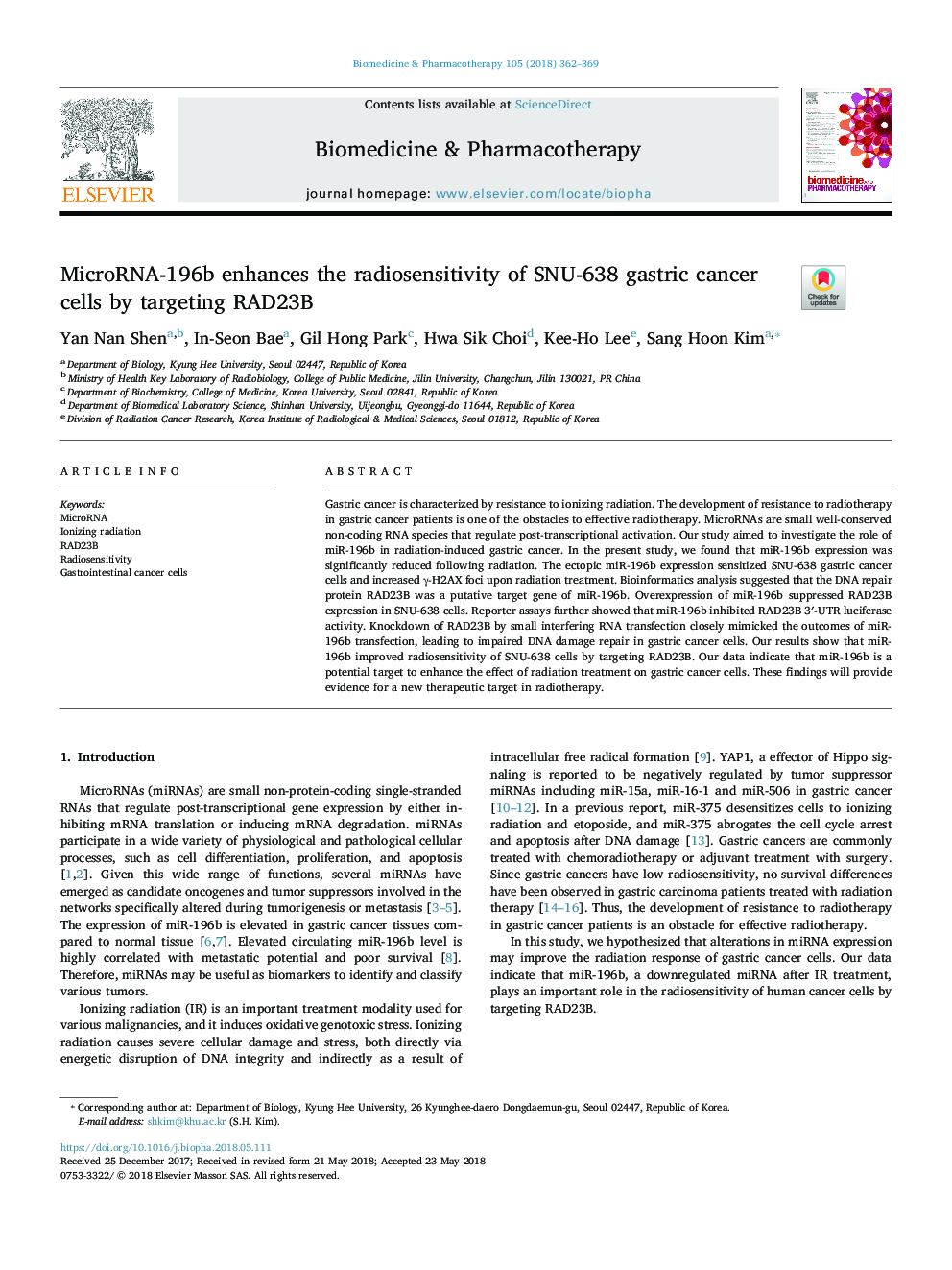| Article ID | Journal | Published Year | Pages | File Type |
|---|---|---|---|---|
| 8524896 | Biomedicine & Pharmacotherapy | 2018 | 8 Pages |
Abstract
Gastric cancer is characterized by resistance to ionizing radiation. The development of resistance to radiotherapy in gastric cancer patients is one of the obstacles to effective radiotherapy. MicroRNAs are small well-conserved non-coding RNA species that regulate post-transcriptional activation. Our study aimed to investigate the role of miR-196b in radiation-induced gastric cancer. In the present study, we found that miR-196b expression was significantly reduced following radiation. The ectopic miR-196b expression sensitized SNU-638 gastric cancer cells and increased γ-H2AX foci upon radiation treatment. Bioinformatics analysis suggested that the DNA repair protein RAD23B was a putative target gene of miR-196b. Overexpression of miR-196b suppressed RAD23B expression in SNU-638 cells. Reporter assays further showed that miR-196b inhibited RAD23B 3â²-UTR luciferase activity. Knockdown of RAD23B by small interfering RNA transfection closely mimicked the outcomes of miR-196b transfection, leading to impaired DNA damage repair in gastric cancer cells. Our results show that miR-196b improved radiosensitivity of SNU-638 cells by targeting RAD23B. Our data indicate that miR-196b is a potential target to enhance the effect of radiation treatment on gastric cancer cells. These findings will provide evidence for a new therapeutic target in radiotherapy.
Related Topics
Health Sciences
Medicine and Dentistry
Oncology
Authors
Yan Nan Shen, In-Seon Bae, Gil Hong Park, Hwa Sik Choi, Kee-Ho Lee, Sang Hoon Kim,
